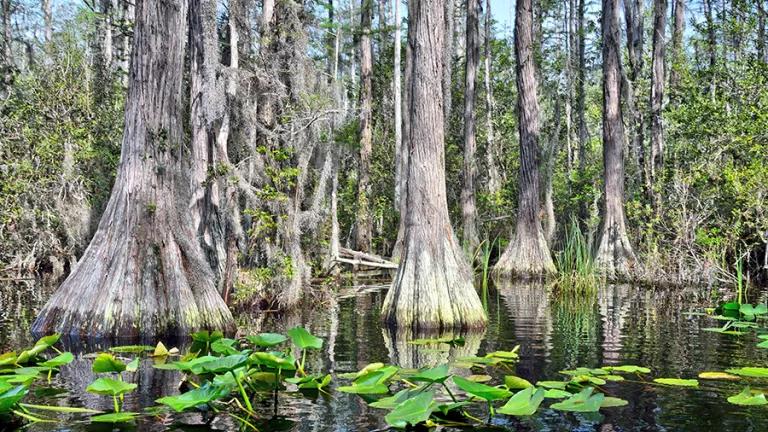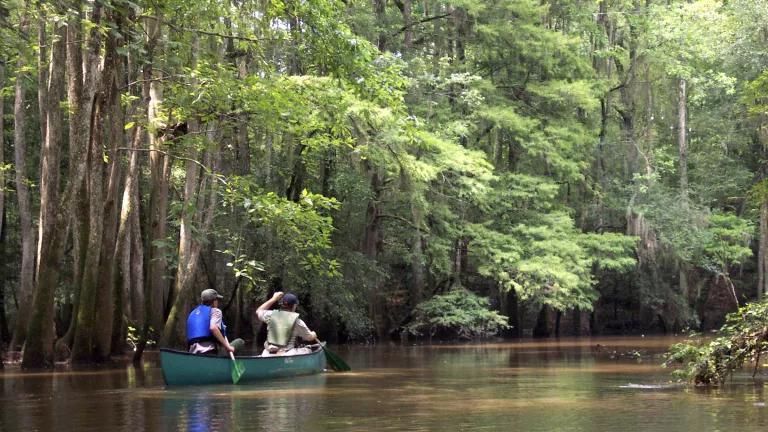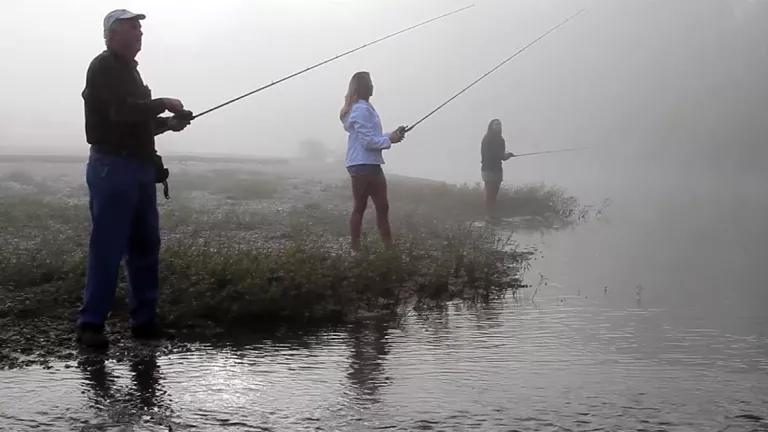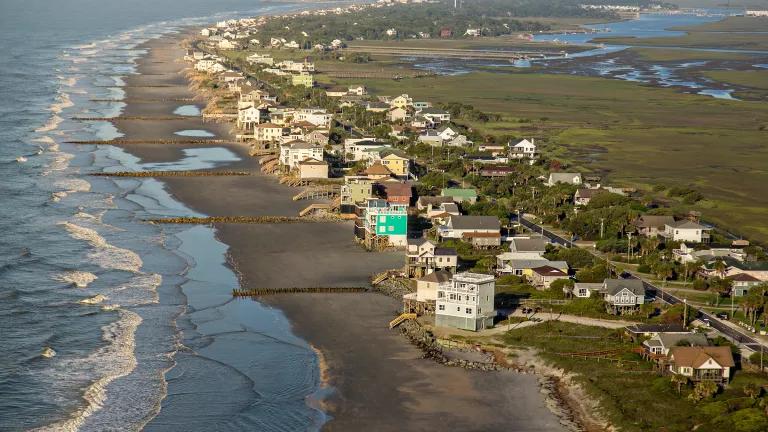Trump’s Clean Water Act rollback now threatens Georgia’s Okefenokee Swamp Park

In one of his signature regulatory rollbacks, President Trump stripped Clean Water Act protections from tens of millions of acres of wetlands. Opponents warned the change would eventually threaten some of the nation’s most fragile ecosystems. They were right. Trump’s rollback is easing the path for a damaging mine to be built in southeastern Georgia—right on the edge of the Okefenokee National Wildlife Refuge.
The federal government previously expressed serious concerns about the proposal to mine for titanium at the edge of the refuge. When reviewing an earlier version of the proposed mining project in 2019, Mary Walker, the regional administrator for the U.S. Environmental Protection Agency (EPA) urged the U.S. Army Corps of Engineers to come out against the mine, pointing out that Twin Pines Minerals, the company behind the project, hadn’t bothered to analyze the mine’s effect on the national wildlife refuge. Based on the information it had, the EPA determined that the mine would have a “substantial and unacceptable impact on aquatic resources of national importance.”
The U.S. Fish & Wildlife Service voiced similar concerns, alleging that the mine operator’s environmental assessment was simply wrong. A field supervisor for the agency warned that the “impacts are not sufficiently known and whatever is done may be permanent.”
Although Twin Pines Minerals has since marginally scaled back the footprint of the proposed project, there is no reason to believe the risks to Okefenokee will be any less significant.
Four years ago, the wetlands that are set to be destroyed by the proposed mine fell under federal Clean Water Act protections. But Trump’s rollback has changed everything. The Army Corps recently determined that the wetlands are no longer protected by the Clean Water Act, meaning that the mining project can now proceed without federal safeguards.
By withdrawing more than half of U.S. wetlands from coverage under the Clean Water Act, including wetlands around Okefenokee—and so many others in the Southeast and around the country—the administration has taken such important decisions out of federal hands. The final determinations on potentially destructive projects will be left to state officials or nobody at all. The Clean Water Act was designed to provide a strong federal backstop against these kinds of threats. In the decades before the passage of the law in 1972, waterways were in a miserable state, in large part because their protection fell entirely to state regulators who often lacked the resources, expertise, or the political will to protect important waters like the Okefenokee Swamp Park. And state laws often don’t apply adequate checks and balances to ensure that regulators are acting in the best interests of the public.
The rollback, which was finalized in April, is currently being challenged in federal court, where environmental advocates are fighting to save the Okefenokee National Wildlife Refuge and millions of acres of other wetlands from exploitation and pollution. The good news is that the Trump administration won’t be around much longer to defend it.
Related Content

The South Needs the Clean Water Rule

Alabama’s Waterways, Wildlife, and Recreation Are Up a Creek with Trump’s “Dirty Water Rule”

Offshore Drilling in the Atlantic? “That’s Not Who We Are.”
